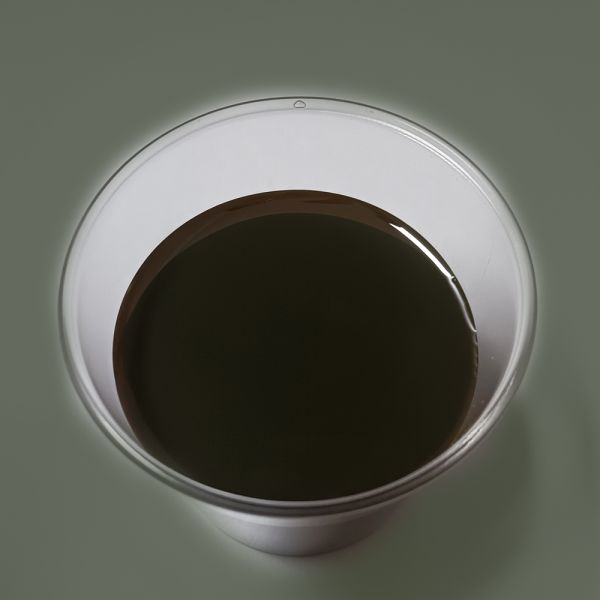Table of Contents
Benefits of Using Cost-Effective Asphalt Stripping Inhibitor Agents for Pavement
Asphalt stripping is a common issue that affects pavement durability and performance. When asphalt stripping occurs, the bond between the asphalt binder and the aggregate is weakened, leading to premature pavement failure. To prevent this problem, asphalt stripping inhibitor agents are used to improve the adhesion between the asphalt binder and the aggregate. These inhibitor agents are designed to reduce the potential for moisture damage and improve the overall performance of the pavement.
| Nr. | Name |
| 1 | Adhesion promoter |
One of the key benefits of using cost-effective asphalt stripping inhibitor agents is their ability to extend the service life of the pavement. By improving the adhesion between the asphalt binder and the aggregate, these inhibitor agents help to prevent premature pavement failure and reduce the need for costly repairs and maintenance. This can result in significant cost savings over the life of the pavement, making it a cost-effective solution for pavement owners and managers.
In addition to extending the service life of the pavement, cost-effective asphalt stripping inhibitor agents also help to improve the overall performance of the pavement. By reducing the potential for moisture damage, these inhibitor agents can help to maintain the structural integrity of the pavement and prevent the formation of potholes and cracks. This can result in a smoother and safer driving surface for motorists, as well as reduced wear and tear on vehicles.
Another benefit of using cost-effective asphalt stripping inhibitor agents is their ease of application. These inhibitor agents can be easily mixed with the asphalt binder during the paving process, making it a simple and cost-effective solution for pavement owners and managers. In addition, many inhibitor agents are environmentally friendly and non-toxic, making them a safe and sustainable option for pavement maintenance.
Cost-effective asphalt stripping inhibitor agents are also highly versatile and can be used in a wide range of pavement applications. Whether you are paving a new road, resurfacing an existing pavement, or performing routine maintenance on a parking lot, these inhibitor agents can help to improve the performance and durability of the pavement. This versatility makes them a valuable tool for pavement owners and managers looking to maximize the lifespan of their pavement assets.
Overall, cost-effective asphalt stripping inhibitor agents offer a range of benefits for pavement owners and managers. From extending the service life of the pavement to improving performance and reducing maintenance costs, these inhibitor agents provide a cost-effective solution for preventing asphalt stripping and maintaining the structural integrity of the pavement. With their ease of application, environmental friendliness, and versatility, cost-effective asphalt stripping inhibitor agents are a valuable tool for ensuring the long-term durability and performance of pavement assets.
How to Choose the Right Cost-Effective Asphalt Stripping Inhibitor Agent for Your Pavement Project
Asphalt stripping is a common issue that can occur in pavement projects, leading to decreased durability and increased maintenance costs. To combat this problem, asphalt stripping inhibitor agents are often used to improve the adhesion between asphalt and aggregate, preventing moisture from penetrating the pavement and causing stripping. However, with a wide range of inhibitor agents available on the market, it can be challenging to choose the right one for your project. In this article, we will discuss how to select a cost-effective asphalt stripping inhibitor agent that meets your pavement needs.
When selecting an asphalt stripping inhibitor agent, it is essential to consider the specific requirements of your pavement project. Factors such as climate, traffic volume, and pavement type can all influence the effectiveness of the inhibitor agent. For example, in regions with high rainfall, a more robust inhibitor agent may be necessary to prevent moisture from seeping into the pavement and causing stripping. Similarly, for high-traffic areas, a durable inhibitor agent that can withstand heavy loads and frequent use is essential.
Cost is another crucial factor to consider when choosing an asphalt stripping inhibitor agent. While it may be tempting to opt for the cheapest option available, it is essential to remember that quality should not be compromised for cost. Investing in a high-quality inhibitor agent may initially be more expensive, but it can save you money in the long run by reducing maintenance costs and extending the lifespan of your pavement.
One cost-effective option to consider is a Polymer-modified asphalt stripping inhibitor agent. These agents are designed to improve the adhesion between asphalt and aggregate, enhancing the overall durability of the pavement. Additionally, polymer-modified inhibitor agents are known for their resistance to moisture and traffic wear, making them an excellent choice for a wide range of pavement projects.
Another cost-effective option is a rejuvenating asphalt stripping inhibitor agent. These agents are designed to restore the adhesion between asphalt and aggregate, rejuvenating the pavement and preventing further stripping. Rejuvenating inhibitor agents are often used in pavement maintenance projects to extend the lifespan of existing pavement and reduce the need for costly repairs.

When selecting a cost-effective asphalt stripping inhibitor agent, it is essential to consider the application method. Some inhibitor agents require specialized equipment for application, which can add to the overall cost of the project. Choosing an inhibitor agent that can be easily applied using standard equipment can help reduce labor costs and streamline the construction process.
In conclusion, selecting the right cost-effective asphalt stripping inhibitor agent is essential for ensuring the longevity and durability of your pavement project. By considering factors such as climate, traffic volume, pavement type, and application method, you can choose an inhibitor agent that meets your specific needs while staying within budget. Investing in a high-quality inhibitor agent may require an initial upfront cost, but it can ultimately save you money by reducing maintenance expenses and extending the lifespan of your pavement. By making an informed decision and choosing the right inhibitor agent for your project, you can ensure a successful and long-lasting pavement that withstands the test of time.

